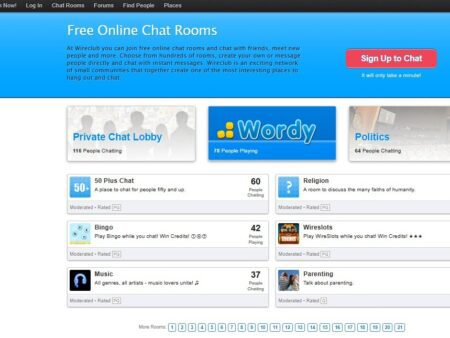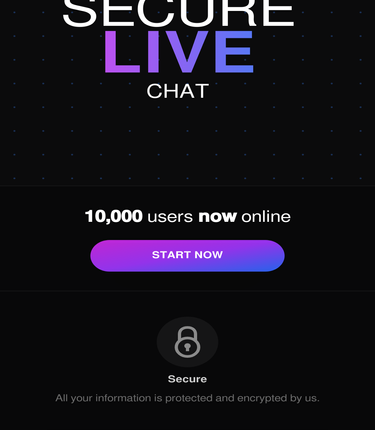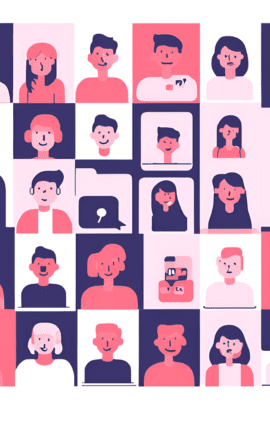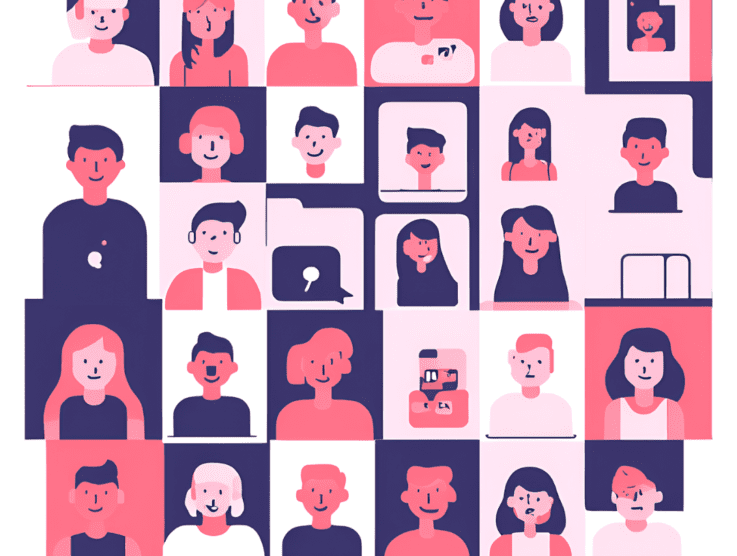Chatroulette has carved out a unique and somewhat notorious reputation in the realm of online chat platforms. Launched in 2009 by a teenager in Russia, it gained instant fame (or infamy) for its core concept: users are randomly paired with complete strangers for webcam-based chats. The element of surprise, the potential for both amusing and unsettling encounters, and its completely unfiltered nature have made Chatroulette a cultural phenomenon sparking both curiosity and caution.
Chatroulette’s rise to prominence coincided with a burgeoning fascination with webcam technology and the nascent world of online video chat. It offered a glimpse into the lives of strangers across the globe, a voyeuristic thrill wrapped in the cloak of anonymity. Early adopters were a mix of curious individuals, those seeking lighthearted entertainment, and a contingent who revealed the platform’s lack of filters or social norms. The unpredictable nature of encounters – you might connect with someone interesting, funny, or even profound, or you might be met with silence, disinterest, or something altogether more objectionable – became a defining feature of the Chatroulette experience.
What is Chatroulette?
Chatroulette is a website that operates on a simple premise – it’s a virtual roulette wheel of social interactions. You log on, grant camera and microphone access, and with a click of the “Start” button, you’re instantly connected to a random person anywhere in the world. No profiles, no swiping, no meticulously curated online representations of yourself – just raw, unpredictable, and often fleeting interactions with complete strangers.
How Does Chatroulette Work?
The beauty (or the bane, depending on your perspective) of Chatroulette lies in its absolute simplicity:
- Visit the Website: Head to the official Chatroulette website.
- Grant Permissions: Allow the site to access your webcam and microphone.
- Hit “Start”: The algorithm will randomly match you with another active user.
- Chat…Or Don’t: Engage in a webcam chat, or click “Next” to instantly move on to another random person.
- Repeat: The cycle of random encounters continues until you choose to stop.
Chatroulette Features
Chatroulette prides itself on its minimalist approach. However, a few key features exist:
| Feature | Description |
|---|---|
| Random Matching | The defining element – a roulette wheel of webcam chats. |
| Text Chat | A basic text chat function alongside the video feed. |
| “Next” Button | Your escape hatch – instantly connect with someone new. |
| Report Button | A minimal safeguard to report inappropriate or offensive users. |
Chatroulette Interface
Chatroulette’s interface is as barebones as its features:
| Interface Element | Description |
|---|---|
| Split Video Screen | Displays your webcam feed and the feed of your chat partner. |
| Text Chat Box | A simple chat area for text-based communication. |
| “Next” Button | Prominently displayed for a quick exit from the current chat. |
| Report Button | May be present but easily overlooked in the simplistic design. |
Advantages of Using Chatroulette
Uninhibited Encounters: The anonymity and randomness can encourage uninhibited conversations free from typical social constraints.
Pure Surprise: Stepping into the unknown – you never know what kind of interaction awaits.
Combating Boredom: Chatroulette provides a quick, unpredictable way to pass the time.
Exploring Human Diversity: Encounters may offer exposure to vastly different people and perspectives.
Practicing Communication: The fleeting nature can be a low-pressure way to practice conversational skills in brief bursts.
Frequently Asked Questions (FAQs)
Is Chatroulette safe?
Chatroulette’s inherent randomness means a complete lack of control over who you encounter. The site is intended for adults, yet due to its unmonitored nature, there’s a high risk of exposure to inappropriate or offensive content.
Can I avoid explicit content on Chatroulette?
Unfortunately, no. It’s best to approach Chatroulette with an expectation of encountering potentially disturbing content and take precautions to protect yourself, especially if you’re a minor.
Are there any rules on Chatroulette?
The site has a basic set of rules prohibiting illegal activity, sexually explicit content involving minors, and spam. However, enforcement is notoriously lax.
Why is Chatroulette so controversial?
Chatroulette quickly became synonymous with explicit content and undesirable behavior. The anonymity and lack of moderation create a haven for individuals who exploit the platform for inappropriate purposes.
Are there alternatives to Chatroulette?
Yes, several websites offer random video chat experiences, some with slightly more filtering options. Sites like Omegle, Chatrandom, and EmeraldChat operate on similar principles.
Conclusion
Chatroulette represents a fascinating anomaly in the landscape of social networking. It strips away the layers of curated online personas and the algorithms that typically guide our virtual connections. In its place, it offers a window into the raw, unfiltered, and often unpredictable nature of human interaction, served up with a hefty dose of internet-age voyeurism.
The appeal of Chatroulette rests in its promise of the unexpected. You might stumble upon a thought-provoking conversation, a burst of laughter, or perhaps even a spark of genuine human connection. Yet, that same promise is inextricably linked with risk. The platform’s lack of effective moderation, coupled with the anonymity it empowers, creates an environment ripe for unsavory or even harmful encounters.
If you choose to explore the world of Chatroulette, it’s essential to proceed with eyes wide open and a healthy dose of skepticism. The site exists as a digital mirror reflecting the best and worst aspects of human behavior. It’s a place where boredom and curiosity collide, where genuine conversation might unexpectedly give way to offensive or inappropriate content.
Whether Chatroulette is a mere fleeting source of amusement, a social experiment, or a cautionary tale about the darker corners of the web depends entirely on the experiences and motives of those who click that now-iconic “Start” button.






